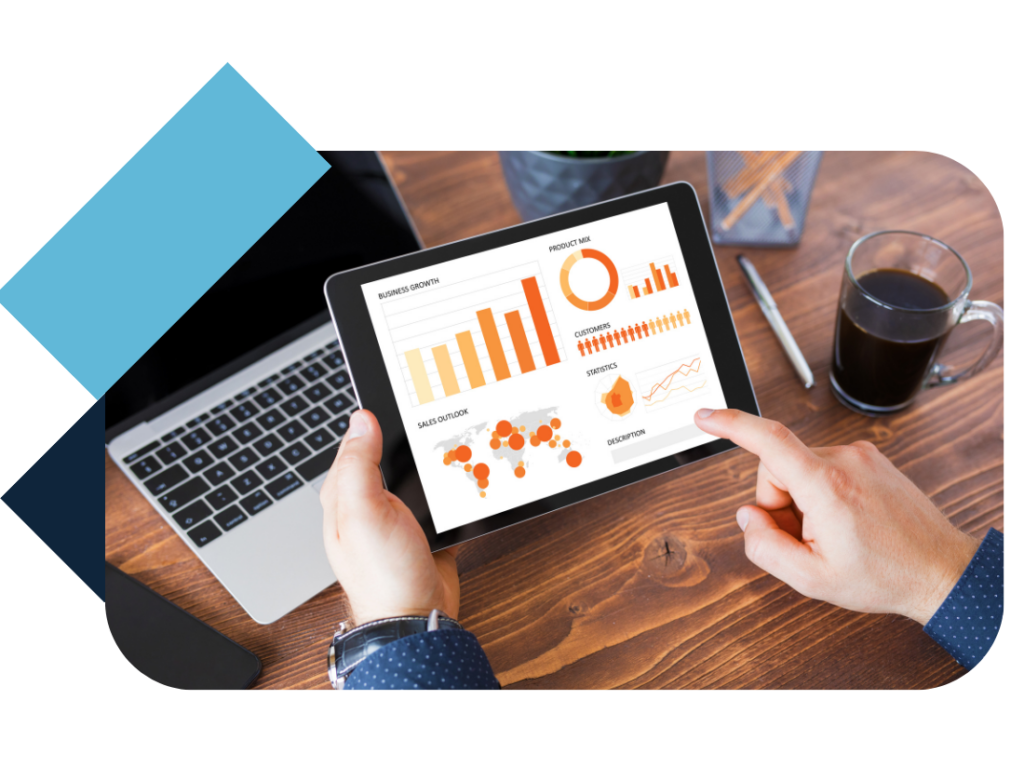What can data mean for your business?
As a small business there isn’t a lot of room for wasted effort, and yet running a business is fraught with uncertainty. How do you make good decisions? As a business owner, you know that any edge you can get can help. In today’s digital age almost everyone and everything is a potential source of data. Turning that data into insight and then into action can provide you with a valuable decision-making tool.
But what is “data” and how can you get it, and use it? It isn’t magical, and it’s not that mysterious. You may have heard of data being used in big companies such as Google and Microsoft, and you may also have heard about others using your own personal data. It has become a buzzword, and can very quickly lose meaning when everyone is doing something different with it and calling it the same thing.
For a small company that data might be as simple as knowing more about:
- Who your customers are
- Where the costs are
- Tracking the performance of marketing efforts.
Where to start?
Using data (or information) is basically getting evidence for your assumptions, and can be used as a tool to ensure your business is on the right track. The task of getting your company into the digital age and solidifying your position can be daunting. Where previously, certain decisions might have been driven by intuition and experience, it can now be more difficult to find traction without getting bogged down by the latest trends. Laurie McCabe says that “The place to start is to ask yourself what you need to know about your business that you don’t know already. What questions do you have that you can’t get answers to today? Everything should be driven from that.”
Don’t waste your time
You need to figure out what is valuable for your business. It doesn’t help to collect all the data possible, especially if you are a small business where those resources could be better used in other areas. Not everything may be relevant or useful to your business. Whatever data you are going to be looking at it has to be able to influence your decision-making, or be actionable in some way. If you are only collecting data for the sake of it you are only wasting your time. Collecting everything just in case is a lot more stressful than collecting, and measuring, something to answer specific questions.
It is a process of trial and error to find the data that can drive your decision-making. The most commonly used data is that surrounding customers and company processes.
What metrics are important for your business?
When your business has some information or data to work with (perhaps in an Excel spreadsheet, Google sheet, or in a database) the next best thing you can do is to start tracking key metrics specific to your business. These metrics are often called KPIs (key performance indicators). If you don’t know how your business was doing in the past, you won’t know if you are doing better or worse at present. Data can help you see if the decisions you make are effective, or ineffective.
A simple example might be a delivery service that suddenly has a much further average travel distance. Looking at the data could help you answer important business questions, and help you to respond effectively. Some questions in this example may be as follows:
- Is this because there is a new cluster of customers further away?
- What routes are the drivers taking?
- What times are the peak times for deliveries?
- Do you need to open up a base of operations in that area to better service these clients?
You wouldn’t know if you weren’t tracking who your customers were over time. Responding to business needs, being aware of changes and trends, and recognising where things should change to be more efficient are all areas where data can help you make informed decisions.
Using data in your company isn’t the answer – but it will help you to ask the most important questions and find some answers along the way. It’s important to remember that the data you are looking for, or choose to use, has to add value to your decision-making processes.
Lula takes a data-driven approach to ensure that we are meeting the needs of SMEs. This helps us to drive efficiency internally and externally for our clients. Because time is a huge asset for small business owners we ensure that our data-driven approach makes the application process and response time quick and easy. Because of this Lula is a leader in the alternative lending space, and often the reasons why small businesses prefer our products and services.
If you haven’t yet applied for funding with Lula you can do so by completing our online application form. It takes 10 minutes and you can expect a response within 24 hours or less.



